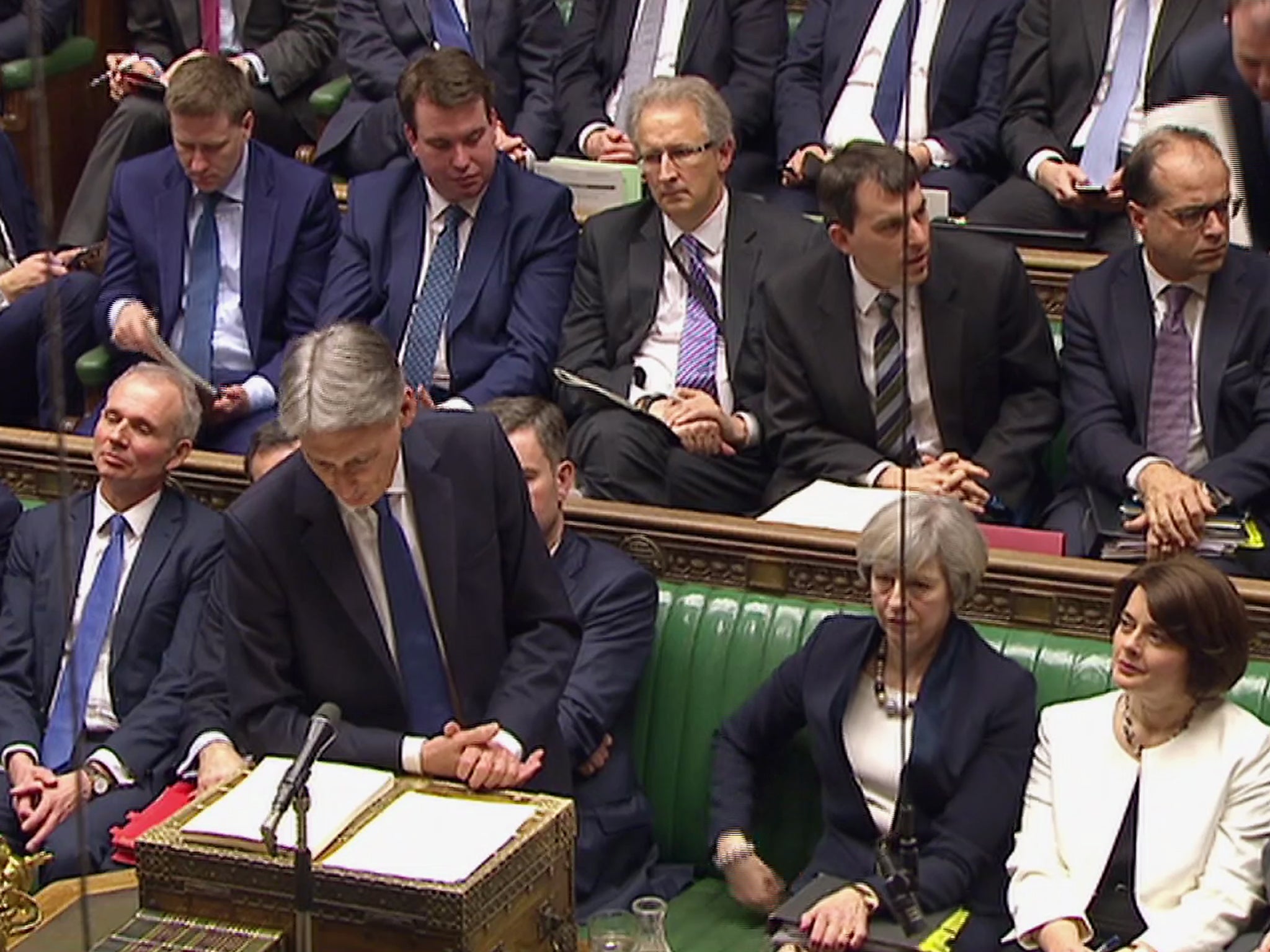Budget 2017: Tax increase announced for self-employed workers by Chancellor Philip Hammond
Reforms come after 'dramatic increase' in number of people registering as self-employed to cut tax bill

Your support helps us to tell the story
From reproductive rights to climate change to Big Tech, The Independent is on the ground when the story is developing. Whether it's investigating the financials of Elon Musk's pro-Trump PAC or producing our latest documentary, 'The A Word', which shines a light on the American women fighting for reproductive rights, we know how important it is to parse out the facts from the messaging.
At such a critical moment in US history, we need reporters on the ground. Your donation allows us to keep sending journalists to speak to both sides of the story.
The Independent is trusted by Americans across the entire political spectrum. And unlike many other quality news outlets, we choose not to lock Americans out of our reporting and analysis with paywalls. We believe quality journalism should be available to everyone, paid for by those who can afford it.
Your support makes all the difference.The Government will raise the rate of National Insurance for self-employed people, the Chancellor has announced.
Presenting his 2017 Budget in the House of Commons, Philip Hammond said there had been a “dramatic increase” in the number of people registering as self-employed - but claimed many are not currently paying enough tax.
He said: “As our economy responds to the challenges of globalisation, shifts in demographics and the emergence of new technologies, we’ve seen a dramatic increase in the number of people working as self-employed or through their own companies.
“Indeed many of our most highly paid professionals work through limited liability partnerships and are treated as self-employed.”
People should have choices over their employment status “but those choices should not be driven primarily by differences in tax treatment”, he added.
Matthew Taylor, the Chief Executive of the Royal Society for the Encouragement of Arts, Manufactures and Commerce (RSA), is already undertaking a review for the Government on different employment statuses. Mr Hammond said early findings suggest different tax arrangements are a “key driver” behind people becoming self-employed.
The Chancellor said an employed person earning £32,000 would rack up National Insurance contributions, between them and their employer, of £6,170, while a self-employed person earning the same amount would pay just £2,300.
This difference was previously designed to reflect the variation in pension and benefits entitlements, but changed last year with the introduction of the new state pension, which gave self-employed people more entitlements.
“The differences in National Insurance contributions is no longer justified by the differences in benefit entitlements”, Mr Hammond said.
“Such dramatically different treatment of two people earning essentially the same undermines the fairness of our tax system. Employed and self-employed alike use our public services in the same way but they are not paying for them in the same way.”
The current lower National Insurance rate for self-employed people will cost the UK £5bn this year alone, he added – something that is “not fair” to the 85 per cent of people who are employed.
In a dig at his predecessor, George Osborne, Mr Hammond said tax changes announced by the previous government “would further increase the gap between employment and self-employment”.
He said he had considered scrapping Mr Osborne’s changes but would instead use other mechanisms to raise taxes on the self-employed in order to “reduce the gap to better reflect the differences in state benefits”.
Join our commenting forum
Join thought-provoking conversations, follow other Independent readers and see their replies
Comments